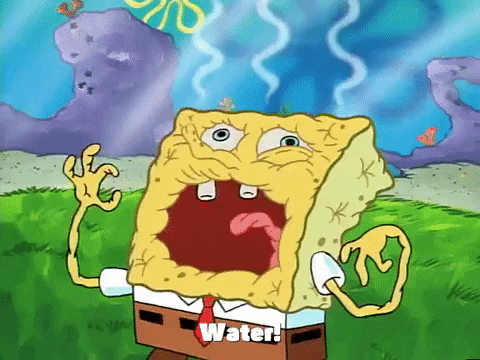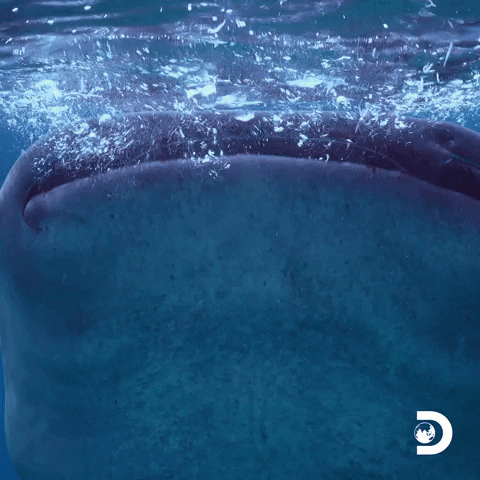



Did you know that an adult human body is 60% water? That’s right, it’s a scientifically proven fact which means that we are basically walking reservoirs of water. H2O is a source of life and our bodies need it to maintain proper functionality. Deficiency of water leads to many consequences that make us feel weak and sick. Water is the most basic ingredient, indispensable and fundamental. Because it is obligatory to many body systems, they all fall apart without it. Hence a very long list of symptoms caused by dehydration.
If you are here, you probably asked yourself this question: ‘Am I dehydrated?’. In today’s test we are going to help you find out if you drink enough water. Answer 20 questions included in the test – Am I Dehydrated? – and learn if you need to change your daily habits.
Do you love coffee? Learn which type of coffee is right for you in our relaxing coffee quiz!
In physiology, dehydration is commonly described as a lack of water in the body. When we lose more H2O than we take in, we end up with water deficiency. If we don’t replenish water in time, dehydration occurs which bears many unpleasant consequences. The list of things that may go wrong is long but to put it short, our bodies can’t carry out their basic functions with right efficiency.
Do you suspect some food makes you feel sick? Take our Food Sensitivity Test to discover if you may have gut problems.
Dehydration can occur in children, teens, and adults. It’s most dangerous among kids and older people. Majority of people can withstand a 3-4% decrease in body fluids without compromising their health in a significant way. A 5-8% decrease, however, has a higher chance of causing serious health problems. In such a scenario, you may feel dizzy and experience moderate exhaustion. A 10% loss of total body water is something we should avoid at all cost. It not only causes severe thirst but also leads to physical and mental degradation. You have probably already guessed that the result of decrease higher than 10% is death which usually happens between 15 and 25%.
Do you struggle to have a good night’s sleep? Find out if you may suffer sleep disorder in our Insomnia Test.
One of the ways we lose body fluids is sweating. When this body function gets out of control, we lose more water than we should. In its excessive form, sweating may lead to dehydration. That’s why it’s recommended to drink more water after workouts or during hot weather.
Another cause of dehydration is alcohol. That’s right, it’s a diuretic or water pill, which means it increases the amount of water and salt removed from the body during urination. It’s important to drink more water than usual after having an alcoholic drink as it may dehydrate you very fast. The reason why hangovers often come with headaches is a decrease in body fluids caused by alcohol.
Busy life can also be considered a cause for dehydration. When we have no time to spare to worry about our diet or lifestyle, we may also forget about proper hydration. Sometimes we just grab a soda can from a vending machine on our way to work and don’t give it much thought. Either it’s intense intellectual or physical work, we need water to continue working efficiently. It’s important to take breaks every now and then, and have a glass of fresh water to avoid dehydration. The right amount of water to drink by adults per day is 2-3 liters. If you drink less than that you may experience thirst which is telling you to drink more.
Another cause to consider is increased urination. If you visit the toilet more often than usual, you may experience some symptoms of dehydration. When we urinate, our bodies expel salt, phosphorus, potassium, chemicals such as uric acid and urea, and, of course, water. The urination itself doesn’t cause any damage, however, an excess loss of water due to urination is a different matter. Whatever the reason may be for frequent urination, make sure to make it up by drinking more water. You shouldn’t urinate more than 2.5 liters a day otherwise you may experience fatigue or dizziness due to water deficiency.
How well do you know the human body? Take this test and check your knowledge about the structure of a human being.
One of the most common symptoms of dehydration is thirst. Thirst is a basic instinct which makes animals want to drink potable fluids. Depending on the degree of dehydration, thirst may be severe, moderate, or very mild. Thirst by itself doesn’t indicate dehydration, although it shouldn’t be ignored as it informs us about the most basic needs of our bodies. Make sure to not stay thirsty for too long – it’s a first step to the dangerous consequences of neglecting proper hydration!
As we mentioned before, dehydration may cause many symptoms. To help you find out if you are dehydrated, we are going to list some of the indicators of this malady.
Am I dehydrated? Does my body need more water? Solve our quiz to learn if you are properly hydrated and your daily habits are healthy. Remember to share this quiz with your friends you think may be suffering from dehydration!
Are you wondering what food to include in your diet? Take this test to find the answer to this question!